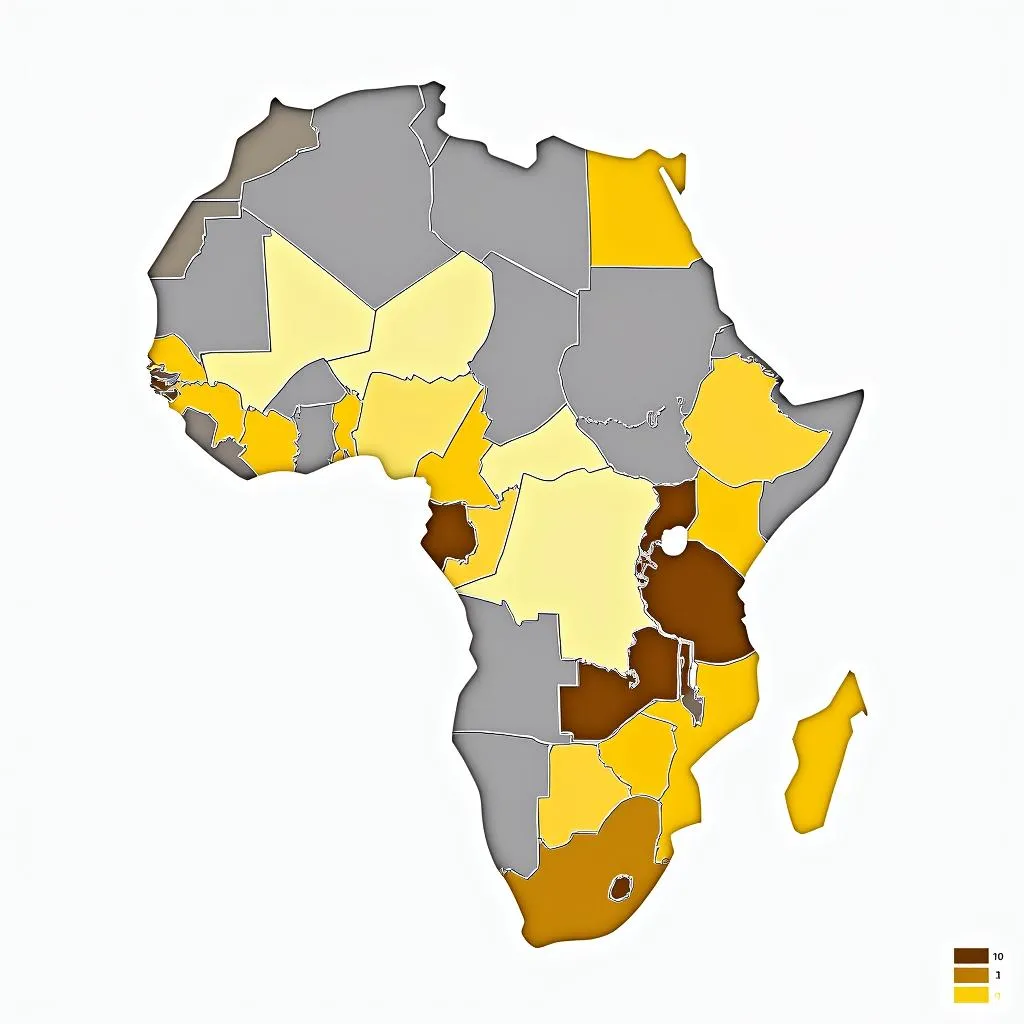African CSOs Lack Capacity to Discuss Internet Content Governance
African civil society organizations (CSOs) often lack the capacity to effectively engage in discussions surrounding internet content governance. This critical issue impacts freedom of expression, access to information, and digital rights across the continent. The lack of resources, technical expertise, and coordinated efforts hinders their ability to advocate for policies that protect these fundamental rights in the digital age.
Understanding the Challenges Facing African CSOs in Internet Content Governance
Navigating the complex landscape of internet content governance requires a deep understanding of technical, legal, and policy frameworks. Many African CSOs struggle with limited resources, hindering their ability to participate meaningfully in these discussions. This includes a lack of funding for research, training, and advocacy efforts. Furthermore, the rapid pace of technological advancements makes it challenging for CSOs to keep up with the latest developments and their implications for content governance.
Limited Resources and Funding
A significant barrier for African CSOs is the scarcity of funding dedicated to digital rights and internet governance. This lack of financial support limits their capacity to conduct research, participate in international forums, and engage in effective advocacy campaigns. Without adequate resources, these organizations are often unable to compete with well-funded industry lobbyists and government representatives.
Technical Expertise Gap
Internet content governance discussions often involve highly technical concepts and terminology. Many African CSOs lack access to experts who can provide the necessary technical expertise to analyze complex policy proposals and advocate for effective solutions. This knowledge gap limits their ability to contribute meaningfully to the debate and advocate for policies that protect digital rights.
Lack of Coordinated Efforts
While many individual CSOs are working on issues related to internet content governance, there is often a lack of coordination and collaboration between these organizations. This fragmentation of efforts weakens their collective voice and reduces their impact on policy decisions. A more unified approach would amplify their message and increase their influence on the development of internet governance frameworks.
Why is Capacity Building Crucial for African CSOs?
Strengthening the capacity of African CSOs is essential for ensuring that the voices and perspectives of African communities are represented in global internet governance discussions. Their participation is crucial for developing policies that protect human rights online and promote a more inclusive and equitable digital environment.
Protecting Freedom of Expression and Access to Information
Internet content governance policies can significantly impact freedom of expression and access to information. African CSOs play a vital role in advocating for policies that uphold these fundamental rights and prevent online censorship. By empowering these organizations, we can ensure that diverse voices are heard and that internet governance frameworks promote open and democratic principles.
Promoting Digital Inclusion and Equity
Digital inclusion and equity are essential for ensuring that everyone has access to the benefits of the internet. African CSOs are working to address the digital divide and promote equitable access to technology and digital literacy. Their efforts are crucial for bridging the gap and empowering marginalized communities to participate fully in the digital economy.
Empowering African CSOs: A Call to Action
What can be done to support African CSOs in their efforts to engage in internet content governance? Increased funding, capacity building programs, and fostering collaboration are key steps towards empowering these organizations.
Dr. Abimbola Adebayo, a leading expert in digital rights in Africa, emphasizes the importance of investing in local expertise: “We need to invest in building the capacity of African CSOs so they can effectively represent the needs and interests of their communities in global internet governance forums.” Investing in local expertise is critical for ensuring that policy decisions are informed by local contexts and realities.
Another expert, Ms. Fatoumata Sarr, a Senegalese lawyer specializing in internet law, adds, “Collaboration between African CSOs is essential for amplifying their voices and maximizing their impact on policy decisions.”
Strengthening African CSOs’ capacity to discuss internet content governance is not just a matter of supporting individual organizations; it is about ensuring a more inclusive and democratic digital future for the entire continent. By providing the necessary resources, technical expertise, and fostering collaboration, we can empower these organizations to effectively advocate for policies that protect human rights online and promote a more equitable digital environment for all.
Conclusion
African CSOs lacking capacity to discuss internet content governance presents a significant challenge to shaping a fair and equitable digital future for the continent. Addressing this issue requires a multi-faceted approach, focusing on resource allocation, capacity building initiatives, and fostering collaboration among organizations. By empowering African CSOs, we can ensure that the voices of African communities are heard and that internet governance policies reflect the needs and interests of all stakeholders.
FAQ
- What is internet content governance?
- Why is it important for African CSOs to be involved in internet content governance discussions?
- What are the main challenges facing African CSOs in this area?
- How can we support African CSOs in their efforts to engage in internet content governance?
- What is the impact of limited capacity on digital rights in Africa?
- How can increased funding help African CSOs in this area?
- What are some examples of successful capacity building initiatives for African CSOs in internet content governance?
Common Scenarios and Questions
-
Scenario: An African CSO wants to participate in an international internet governance forum but lacks the funding to travel and attend.
-
Question: How can they access funding opportunities to support their participation?
-
Scenario: An African CSO wants to analyze a complex policy proposal related to internet content moderation but lacks the technical expertise.
-
Question: Where can they find resources and training to develop the necessary technical skills?
Further Reading and Related Topics
Explore other articles on our website about digital rights in Africa, internet access, and freedom of expression.
Call to Action:
Need support? Contact us 24/7: Phone: +255768904061, Email: kaka.mag@gmail.com, or visit us at Mbarali DC Mawindi, Kangaga, Tanzania. Our dedicated customer service team is ready to assist you.


